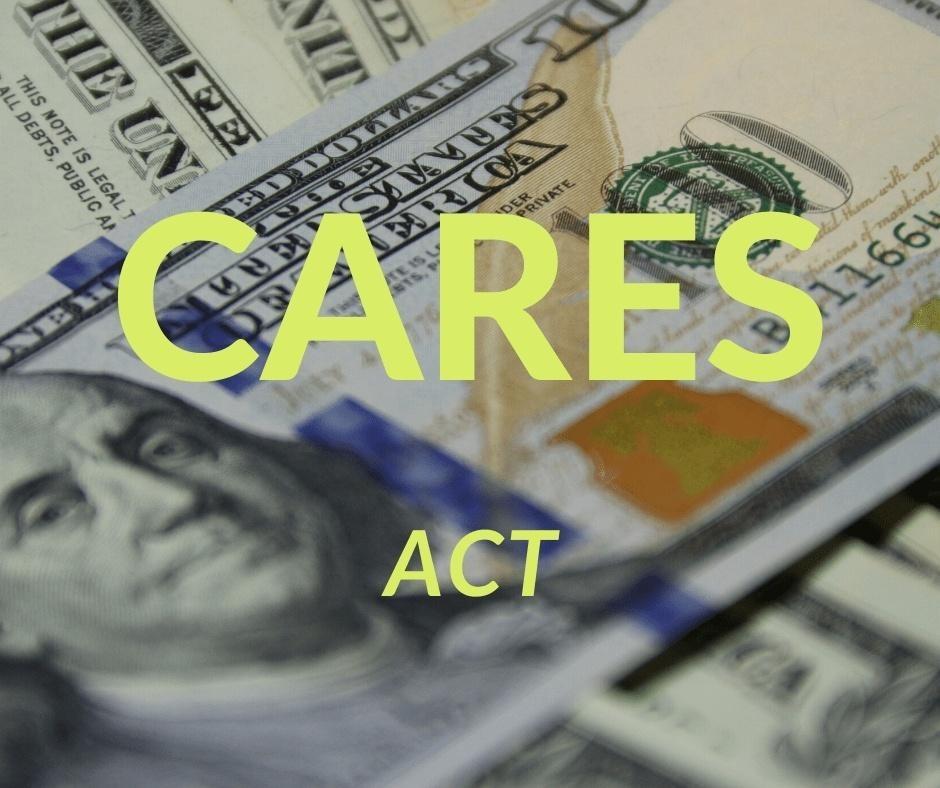March 27, 2020, is the date that the Coronavirus Aid, Relief, and Economic Security Act (CARES Act) was passed. The CARES Act is a $2 trillion stimulus package and designates emergency funding for topics such as healthcare, state funding, and overall relief.
What immediate impact does the CARES Act have on healthcare during the period of the COVID-19 emergency?
Primarily, CARES designates funds and lifts restrictions (for a defined period during the crisis, and a date beyond, when applicable) that have previously been in place.
- Provide resources to build a public health surveillance system: real-time data exchange that will enable coordination and timely response across the health system.
- Provision made specifically for Telehealth:
- Expand access to telehealth and other connected health technology capabilities
- Promote the use of telehealth for delivery, education, and health information
- Allow telehealth for treatment of substance abuse disorder
- Target funding for projects to expand telehealth in rural areas
- Allow conditions for a High Deductible Health Plan (HDHP) with a Health Savings Account (HSA) to cover telehealth services
- Remove the requirement that a physician or other professional must have treated the patient in the past three years to be eligible to provide telehealth
- Expand authority beyond the originating site and geographic limitations to include additional providers
- Allow Federally Qualified Health Centers and Rural Health Clinics to serve as a distant site for telehealth consultations
- Eliminate the face-to-face requirement for a nephrologist to conduct evaluations of a patient on home dialysis
- Allow qualified providers to use telehealth to fulfill the hospice face-to-face recertification requirement
- Direct the Department of Health and Human Services (HHS) Secretary to encourage the use of telecommunications systems (including remote patient monitoring) to furnish home health services consistent with the beneficiary care plan
- Provide $200 million for the Federal Communications Commission (FCC) to support the efforts of healthcare professionals by providing telecommunications services, information services, and devices necessary to enable the provision of telehealth services
- With regard to HIPAA: require the HHS to issue guidance on what can be shared of the patient record
- The Centers for Disease Control and Prevention (CDC) receives funds to accelerate and replenish public health preparedness and response
- Fund for our health system to prevent, prepare for, and respond to coronavirus, domestically or internationally
- Fund educational grants to address the risk of and mitigation of cyber threats in remote customer service or telework practices
- Fund the immediate needs of state, local, tribal, and territorial governments to help citizens respond and recover
- Extend the Medicaid Community Mental Health Services that provides coordinated care to patients with mental health and substance use disorders
- Provide support for telehealth, surveillance, and informatics infrastructure with the application of Smart health IT technologies and systems including:
- Fund the VA and expand the capacity of IT networks to address the demand in services and broaden telehealth services
- Empower the HHS to emphasize the use of telecommunication, including remote patient monitoring and other services
- $1 Billion Families First Coronavirus Aid Package through HUD Community Development Block Grants to help the recovery of cities, counties, parishes, and states
- Fund the Scientific and Technical Research and Services
- Temporarily lift the Medicare Sequester for non-telehealth/RPM related Medicare-Medicaid measures, which will boost payments for hospitals, physicians, nursing homes, home health care, etc.
- Increase the Medicaid payment that would otherwise be made to a hospital for treating COVID-19 patients for the duration of the COVID-19 emergency period
Healthcare companies, community agencies, and universities have utilized CARES Act funding to train their staff (and students at universities) in TeleMental Health. More information regarding telehealth training, visit either our Employee group training page, or our university graduate programs page.




The course was so informative and I was glued to my screen for the entire duration. I received so much knowledge concerning ethics in telehealth and I am greatly encouraged to read about all the standards and policies that pertain to my practice. Thank you!.